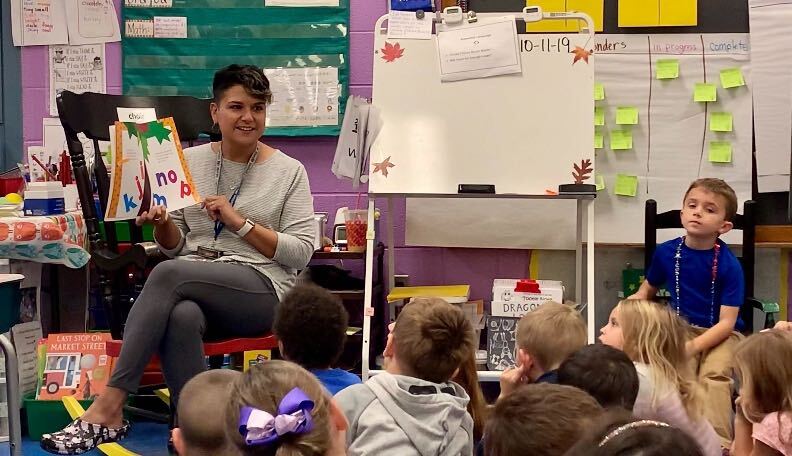Professional Development is my thing. Arguably nothing is more important than investing in our teachers… and yet it’s an area that all too often falls short. I’m passionate about solving that problem.
It’s an urgent problem. In recent years, we’ve had a national reckoning about the critical need for professional development in reading instruction, as teachers shared frustration about their preparation. Sadly, many teacher prep programs don’t teach teachers how kids learn to read. (I’m shaking my head as I write that sentence.) This issue compels our attention: districts need to understand and address the unfinished learning of their teachers, which aren’t limited to literacy.
Mind you, this isn’t easy. We do our best work when we have truly great PD partners, yet those have been exceptionally hard to find.
Challenges abound, and it helps to name them:
One-size-fits-all PD
The best professional development is tailored to the needs of the team – which vary!
Different roles have different arcs of learning: teachers, principals, and central office staff typically have specialized needs.
The first year of a district initiative comes with very different needs than year three. I can still remember the first year of our literacy work in Baltimore, when the learning revolved around literacy fundamentals, such as the importance of foundational skills as well as getting all kids working with grade level texts. Now we are in year three, and we’re working on refining our approach. Today’s questions look more like: How do you make lesson study relevant to teachers?
Also, as a believer in curriculum-aligned and job-embedded PD, I know that professional development providers need expertise in any materials that are in use, where districts have adopted high-quality curricula.
Professional Development should come from specialists with expertise that corresponds to these types of contexts, which will be unique to each district.
The challenge of needs assessment
Sometimes districts want help with the first step: understanding their needs and opportunities for improvement. Often this is especially valuable for districts beginning the curriculum selection journey.
Did you know that there are organizations that specialize in auditing the instruction across a district and recommending improvement opportunities – from PD to pedagogy to curriculum? This support is invaluable! Jared Myracle describes how a similar audit illuminated issues in his district, then aligned his team around an improvement plan.
Yet virtually no one knows that this service exists! We need to raise awareness of such options.
“Spray & Pray” PD from many traditional curriculum providers:
This issue looms large in our space. The big curriculum providers historically offered Professional Development “free with purchase” of a new program, and it was worth what districts paid for it, barely going beyond the anatomy of the materials. This legacy of weak PD from curriculum providers tarnished the impression of “curriculum PD” for many educators.
Fortunately, many of the newer providers offer vastly better professional learning experiences… particularly for curriculum-aligned PD. Yet this development, too, is largely unknown. Just as we talk of a curriculum renaissance, there has been a PD partner renaissance which deserves a conversation.
An opaque landscape:
You’ve probably noticed a theme emerging: the challenge of knowing the new and high-quality vendors and service options. Districts that came early to high-quality curricula have been getting to know the new generation of providers, as Brian Kingsley has noted. Yet this has essentially been insider information, known to a small community of early adopters. K–12 education has lacked a directory, as well as a source of ratings, for these PD providers.
Fortunately, this is changing, too! Rivet Education has just debuted a Professional Learning Partner Guide that is intended to help districts find their ideal partner across all of the criteria above. Trained educators have evaluated the Professional Learning providers, which is invaluable by itself.
For those who know EdReports, the curriculum review site, this new Guide can be thought of as a natural partner to EdReports, but for PD. It helps districts ensure results from curriculum adoption, by finding the right partners for each part of the journey – from needs assessment to the optimization of a mature literacy program. Simply seeing all of the options more clearly can help districts to craft a comprehensive, multi-year roadmap for professional learning.
I believe that this is a revolutionary and essential service to the field, and I have been proud to work with Rivet Education as they brought this work to fruition. Professional Development is a major investment for districts – in time, in dollars, in potential for impact. District leaders will benefit greatly from this insight into the previously-murky PD landscape, through transparency, reviews, and guidance in finding just-right options.
Ultimately, our teachers and students win when PD yields true professional learning. Just as EdReports brought new visibility and discourse into the curriculum space, I hope to see a similar flourishing around professional learning in the years to come.
Janise Lane is the Executive Director or Teaching and Learning at Baltimore City Schools in Maryland. You can read more about her work here.
Curriculum Notes
Janise would be glad to connect about these high-quality curricula which are used in Baltimore City Schools:
K–8 ELA:Wit & Wisdom (all-green on EdReportsin grades 3-8, Tier 1 on Louisiana Believesin grades K–8)
Math, Kindergarten through Pre-Calc:Eureka Math (all-green on EdReportsin grades K–5, Tier 1 on Louisiana Believes)
